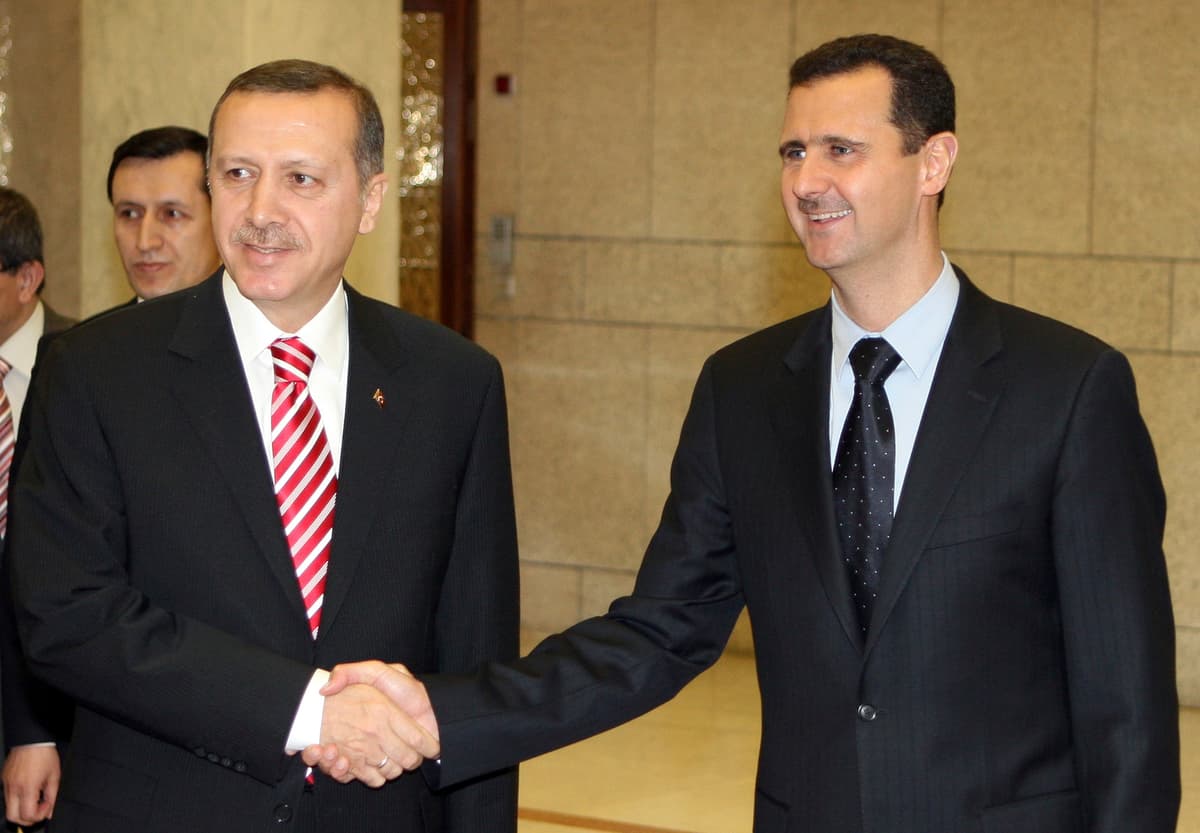Turkey, in Concert With Syria, Aims To Redefine Maritime Boundaries in Its Favor
After Assad’s ouster earlier this month, Ankara is keener than ever to exploit energy resources under the Mediterranean Sea.

Greece and Cyprus will be watching Turkish moves in the Mediterranean next year, based on Turkey’s announcement this week that it wants to strike a maritime demarcation agreement with Syria once a permanent government is formed at Damascus.
The Turkish infrastructure minister, Abdulkadir Uraloğlu, told reporters in Turkey on December 24 that, “We will finalize a maritime jurisdiction agreement with the Syrian administration,” adding that “an emergency action plan encompassing aviation, railways, highways and telecommunication services is underway. We are also working to reactivate the airports.”
Commercial opportunities and political advantage are almost certain to commingle. Also this week, Turkey’s energy minister, Alparslan Bayraktar, announced this week that a delegation from his ministry is planning to visit Syria soon in order to evaluate the country’s electric grid and energy infrastructure.
Turkey backed the Syrian rebels who toppled President Assad this month after a 13-year civil war and has been in close contact with the new interim Syrian administration. Turkey’s intelligence chief and foreign minister have already held meetings with the de facto Syrian leader, Ahmed al-Sharaa.
As for maritime rights and energy resources in and under the Mediterranean Sea, they are frequently intertwined, and Ankara is not hesitating to use its newfound leverage in Syria to its advantage. Complicating matters further is overlap with certain longstanding and competing territorial claims in the region — an issue already raising hackles in the capitals of nearby Greece and Cyprus.
To what extent Turkey and Syria intend to push the limits of their exclusive economic zones, or EEZs, in the Mediterranean remains unclear. However, according to Turkish and Greek press reports, a retired Turkish admiral, Cihat Yayci, said this week that a deal between Turkey and Syria could enlarge Turkey’s maritime claims by more than 1,500 square miles.
This has generated some alarm at Athens, where the newspaper Kathimerini reported that diplomatic sources said, “this is a transitional situation in Syria that does not legitimize such agreements. We are closely monitoring developments and remain in constant communication with Cyprus, neighboring countries and the European Union.”
It is understood that one of those neighboring countries is Israel, with which Greece has a strong strategic alliance.
As the Sun has previously reported, earlier this month, and prior to reports of an imminent Turkish-Syrian agreement, the Greek defense minister sounded the alarm on what he called “the continuous expansion of Turkish claims.”
What Turkey calls its “Blue Homeland” doctrine refers on its surface to the color of the sea but is widely seen as a potential springboard for Ankara’s wider geostrategic goals — Turkey’s membership in the NATO alliance notwithstanding.
In 2019, Turkey and Libya — which Mr. Dendias called “a failed state” — signed a memorandum to establish a new EEZ in the eastern Mediterranean. Greece considers that agreement to be void, particularly as it challenges the established maritime rights of islands including Crete and Cyprus. The concern is that with Syria still in a state of political flux, President Erdogan will now try to flex his Turkish muscle from multiple directions in the Mediterranean.
Especially wary is Cyprus — the EU member country that sits closest to Syria, and which Turkey invaded in 1974. It still occupies the northern third of the island which, in its southern portion, houses two strategic and sovereign British military bases.
Following the Turkish announcement, the Cypriot government spokesman Konstantinos Letymbiotis told the Cyprus News Agency that “Any attempt to challenge, influence or disregard the sovereign rights of the Republic of Cyprus constitutes a violation of international law and the Republic of Cyprus will take all available measures at international and European level.”
Mr. Letymbiotis added that Cyprus is “closely monitoring developments” and that President Christodoulides along with Greek Prime Minister Kyriacos Mitsotakis have informed EU leaders about Turkey’s designs.

